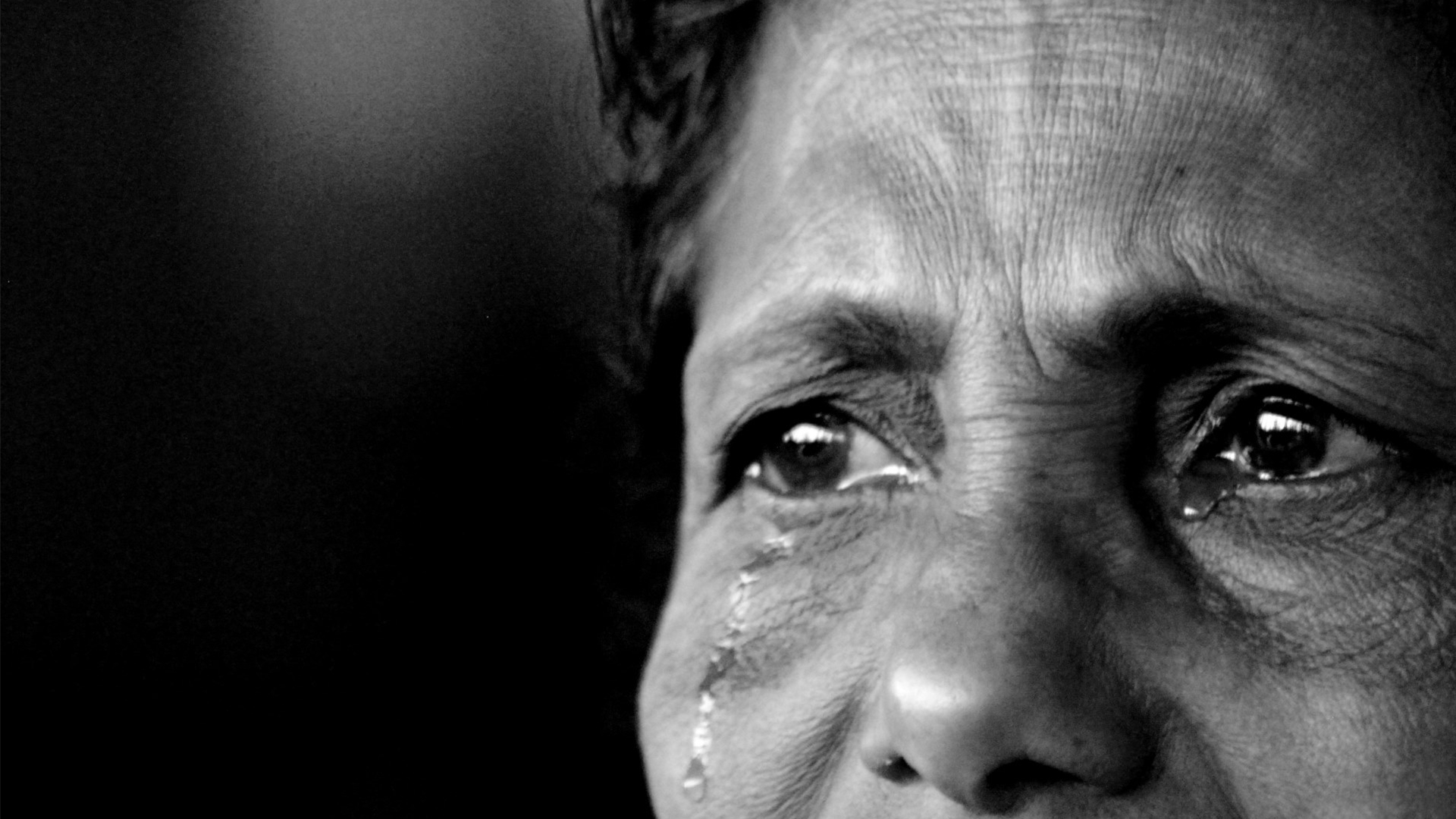A study of one organisation’s dedication to fighting violence against women.
Anupama’s* arms are folded, unconsciously protecting herself as she tells her story.
“Since we have two small children, I bore it for some time, thinking he is not a bad person. He will change. Once he is in his senses, maybe he’ll be back to normal.”
That didn’t happen.
It all went downhill after her new husband lost his job while Anupama was still on maternity leave. Her mother in law then began setting her new husband against her. Suddenly, the young family found themselves in the midst of escalating tension, eventually erupting into violence. Initially, Anupama felt powerless.
“I didn’t know anybody here, since I am from a different country, and had the language barrier to face. I didn’t know who to approach,” Anupama said.
In the end, it was her country’s high commission who referred her to Women in Need (WIN) a centre dedicated to eliminating violence
against women, particularly domestic violence.
WIN was trying to mediate a settlement, when suddenly Anupama’s husband filed a court order and took her two young children away
from her. She approached the police, who told her they couldn’t help her without a court order. In the end, Anupama won back temporary custody rights, thanks to WIN’s intervention.
Anupama isn’t alone. Like her, there are many others who are afraid to ask for help. Much of this stems from shame. As Priya* put it, “Often, you are too embarrassed to talk about domestic issues [to outsiders].”
Priya’s son was still in nursery school when her husband turned abusive – and witnessed much of it. Priya’s husband was initially a pavement vendor, but lost his job when the pavement was demolished to make way for a new shop. He then found work at a small ‘hotel’ and began an affair with a much older woman – right in front of Priya and her young son.
Priya too had to fight for custody of her son. What’s more, her husband wasn’t just violent towards his family; he had also killed a boarder who had been staying with him. “I was shattered when I first came here. I had no money, and was living with my mother, who was supporting me. Every morning when I woke up… I couldn’t think of the future. I thought we would die,” she said, recalling those dark days.
Today, Priya has a job at Women in Need, and is able to support herself – she even paid her son’s nursery school fees by herself.
“I’m not afraid any more. Now I can survive on my own,” she says, proudly.
Priya says part of the reason she is able to get up in the morning is her counsellor, who is ‘like a second mother.’
Accessibility view
Chief Counsellor Padma Kahaduwa has been working at WIN for 25 years. She initially joined as a volunteer, but once she received her diploma in Psychiatric Counselling, she joined as a permanent staff member.
Padma’s job never ends. After hours, calls to WIN’s hotline are often redirected to counsellors’ mobile phones. It is the counsellor who is the first point of contact at WIN, talking to the patient and assessing whether they need legal help.
At times, suspicious husbands even call up the WIN hotline, demanding to know why there were missed calls to them. “We had one such call just yesterday, from a man who’s an unemployed drug addict. The wife wants to leave him, but she has two young children. The court has given her a three month period to see if they can settle their differences – but they can’t be settled. Every evening, he takes drugs. He won’t leave her alone,” Padma said.
WIN’s first priority is to try and settle the dispute between an arguing couple. “We talk to both parties to try and negotiate a settlement. If it becomes clear that one can’t be reached, it’s only then that we resort to legal measures,” Padma said. This is to try and disrupt the family as little as possible, since removal of the breadwinner of the house can cause numerous social and financial issues, which can affect young children, Padma explains.
Apart from this, counsellors conduct many activities, from sewing circles to support groups. The groups have been particularly powerful for those recovering from domestic violence, since they can see others in their situation supporting themselves successfully, Padma says. In addition, the group members often meet and support each other even outside therapy sessions.
The Legislation Regulating Domestic Violence
Each year, WIN’s legal department files an average of 15 to 20 domestic violence cases. Currently, there are 25 ongoing. According to the Women and Children’s Bureau, 499 domestic violence cases were filed with the police in 2013 alone. Most people think that the court system in Sri Lanka is fundamentally flawed, with cases dragging on for years.
This isn’t actually true for domestic violence cases, however, which fall under the Prevention of Domestic Violence Act. Most of the women who call the hotline are married and between the age of 20 and 50 years. There are far more calls now than in the past, but the stigma of talking to a stranger about personal issues at home is still strong.
Once it is decided that legal action needs to be taken, a legal officer will attempt to get a protection order from the abusive husband. Usually, an attempt is made to bring the protection order ex parte, i.e. without the husband’s presence. Though not guaranteed, this is usually granted. After this, the husband has to appear before the courts within a period of 2 weeks. Next, a decision needs to be made whether the interim protection order be made permanent. Unlike other cases, domestic violence cases are processed relatively fast thanks to this law. However, this only applies to victims of domestic violence – i.e. wives, ex-wives and co-habitees. What’s more, there needs to be proof of abuse – ideally hospital and police reports. Showing evidence of mental and emotional trauma is also possible under the Act but there are practical difficulties, since a judge has to be satisfied that there is a definite threat.
While domestic violence cases are processed relatively quickly, the emphasis is still on attempting to maintain the family unit. Often, the courts will suggest a short period at home in order to ascertain whether the conflict between a couple can’t be resolved. This results in many victims of violence, like Kumari* going back to their abusive husbands while the court cases are ongoing.
“I was just 19 when I eloped. He told me he was a Sales Executive at Suntel. It was only after I married him that I found out he was a drug dealer,” she said.
When Kumari was admitted to hospital to deliver her first child, the doctor noticed she showed signs of sustained sexual abuse. The ward nurse, a family friend, alerted Kumari’s father, who took her in. Kumari made several police entries, to little effect. She then went to court, and returned home for a 6-month period to try and reconcile with her husband, for the sake of her child, on court orders. She was soon pregnant again.
The doctor who delivered her second child was less sympathetic. In fact, he told other nurses and patients on the ward that Kumari was promiscuous.
“Now I can’t leave the house… I can’t take my children to Montessori. It’s really affected me,” she said, breaking down. “Only the first doctor who spoke to me knows the truth.”
Kumari’s case is still ongoing. She has also been given a job at WIN and is grateful for the support she has received. “My father was supporting me, but I can’t always depend on him.”
One striking similarity between all the women interviewed for this piece was that every one of them asked not to be photographed. They feared that their children would somehow suffer repercussions after they shared their stories.
Apart from their reluctance to be photographed, most of the women interviewed had another thing in common – their reaction upon being asked what they would say to other women in their position.
“Speak up. Don’t stay silent,” Anupama said. “Initially I thought, if the person who I came to this country for, the person I gave my life to, doesn’t understand me, then how can anyone understand me? That was wrong. There are people who understand and care. WIN is one such organisation who gives you confidence and everything is done in a human way.”
“Don’t hide your problems. If you do, you will suffer [in the end]” Priya said. “I have no words to thank WIN for all they have done for me. It is thanks to them that my son and I are alive today.”
WIN’s Services
WIN offers many services apart from counselling and legal assistance.
Crucially, they operate a 24-hour hotline (0114 718585) where women can call in to report incidents of violence. They also offer counselling, legal services, and temporary shelters in Colombo and Matara, providing safe spaces to victims of violence. Going the extra mile, they also have a dedicated desk in several key police stations in Colombo (at the Kirulapona Police Station, Women and Children’s Bureau at the Police Headquarters as well as the Kandy and Weligama Police Stations). Recognising that many abused women do not want to reveal the true source of their injuries, WIN also operates 8 one-stop crisis centres offering counselling in hospitals across the island. 8 more women’s resource centres offer not just a safe space but also library facilities, skills development and outreach programmes for women in Anuradhapura and Matara. In addition, WIN’s successful recycled paper greeting card project gives women recovering from domestic violence the means with which to support themselves.
WIN also provides psychological counselling services, legal advice, awareness programmes, skills development trainings and court representation to female inmates at the Welikada, Kalutara, Anuradhapura, Badulla, Kandy, Jaffna and Tangalle prisons.
*Names changed to protect privacy








